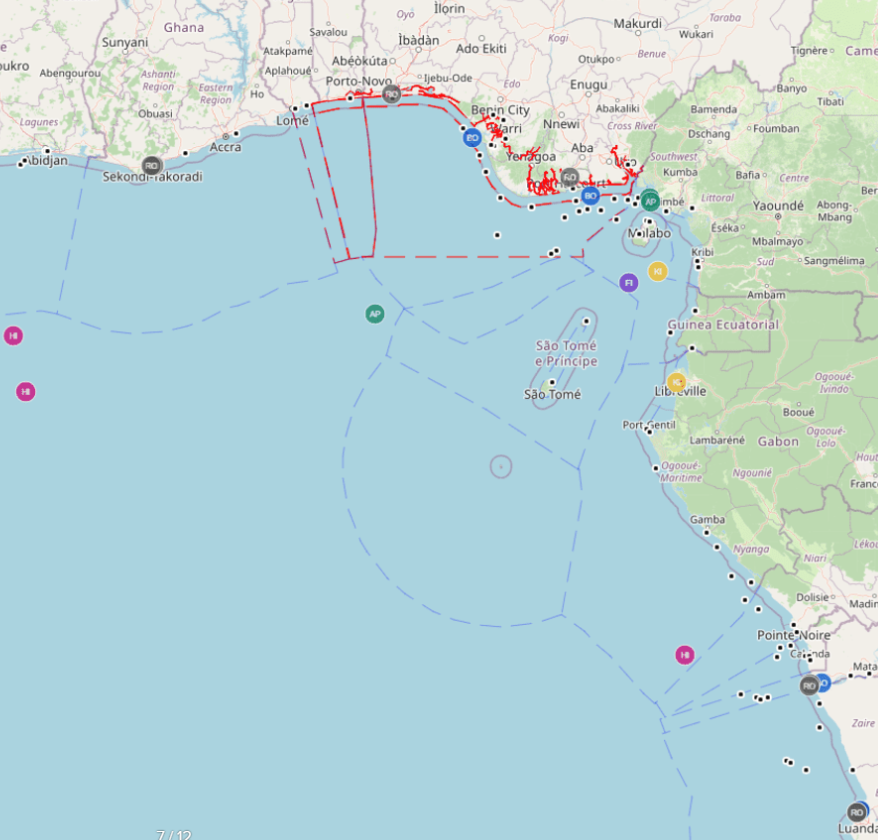Dryad Global published its Annual Report 2022/2023, which demonstrates that war risk, illegal territorial expansion, cyber crime and global health issues all significantly challenged the maritime industry in 2022.
The war in Ukraine
According to the report, the war in Ukraine was the most significant risk event to have disrupted global maritime trade within 2022. The conflict has impacted the shipping industry in several ways, including:
- Restricting freedom of navigation within the Black Sea;
- Commercial disruption with Russia and Ukraine;
- Having to tackle the burden of sanctions placed on Russia and the associated increase in insurance premiums.
Never before has the threat to the commercial maritime market been so multifaceted and required impartial and nuanced analysis.
… said Corey Ranslem, CEO, Dryad Global
Indian Ocean maritime security incidents
Throughout 2022, the northern Indian Ocean witnessed several maritime security incidents that had significant implications for the region. These included the targeted attack on the Israeli vessel M/T Pacific Zircon by Iran in November, a series of incidents involving Houthi rebels offshore of Hodeidah in Yemen and a number of attacks on vessels calling at southern Yemeni ports along the Gulf of Aden coast.
Alongside such notable events were a number of smaller but no less tangible maritime security concerns in the form of robberies at key ports in India and approaches recorded within the Bab al Mandab and Gulf of Aden.
West African Region
In 2022, incidents of piracy and maritime crime continued to decline in the waters of Nigeria and the wider Gulf of Guinea. Increased regional and international collaboration likely played a significant role in the drop off in incidents, as governments and organizations worked together to combat piracy.
Joint naval patrols, intelligence sharing, and coordinated responses to piracy incidents improved maritime security. Governments in the region also increased their law enforcement presence, deploying more naval vessels and patrol boats to piracy-prone areas.
Additionally, counter-piracy legislation and prosecution were strengthened, criminalizing piracy and establishing specialized courts.

South East Asia
In 2022, South East Asia continued to face a number of unique maritime security concerns. The Strait of Malacca and Singapore and the Philippines experienced high frequency of low-level maritime crime.
Geopolitical instability persisted in the South China Sea due to territorial disputes, with China’s assertive actions exacerbating tensions. Additionally, the potential for conflict in the Taiwan Strait threatened commercial maritime activity.
Regional governments and international organizations prioritized cooperation and capacity-building to address these challenges, focusing on enhanced patrols, information sharing, and joint exercises. Efforts were made to promote a rules-based order, freedom of navigation and adherence to international law for stability in the region’s maritime domain.
Gulf of Mexico
In 2022, the Gulf of Mexico faced increased maritime security concerns, particularly in the Campeche Bay region. The rise in piracy incidents targeting static platforms, offshore supply vessels, and the local fishing industry was notable.
These incidents are often characterised by violence but thus far are understood to not involve kidnapping. There is understood to be significant underreporting of the issue.
Libya
In 2022, Libya continued to face a range of security challenges that had significant implications for the maritime domain. The ongoing conflict between the Government of National Unity (GNU) and the Libyan National Army (LNA) remained a central issue, resulting in widespread violence, displacement, and an unstable environment within Libya.
A notable development was the increased rate of inter-militia conflict towards the end of 2022. Foreign fighters and mercenaries were also involved in the conflict, further exacerbating the instability and impeding efforts towards lasting peace. The proliferation of weapons throughout the country posed a continuous risk, making Libya increasingly dangerous and heightening the potential for violence.
While reunification became a stronger topic of conversation between the opposing governing parties within Libya towards the end of 2022, it remains an unlikely possibility in the short- to medium-term.
Cyber security
However, despite its importance to the global economy, the maritime industry, it’s people, vessels and infrastructure rely on disparate, outdated information and operational technology. Dryad Global talked to Prof Jones about the existing maritime cybersecurity landscape and how it is likely to evolve. He shared his views on what the industry ideally needs to do to mitigate cyber threats, and what the potential consequences of inaction or delayed action could be for global supply chains, commerce and security.
The first industry problem is awareness: there are still many people who think that even progressive regulations like IMO 2020 and the US Coast Guard’s implementations are unnecessary
… said Professor Jones, head of the University of Plymouth’s Cyber-SHIP Lab


































































